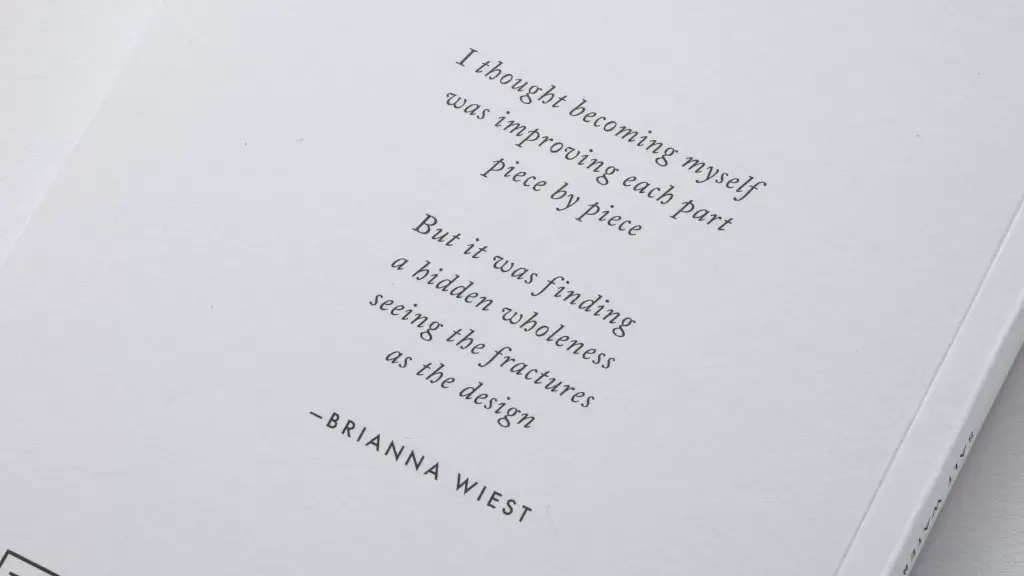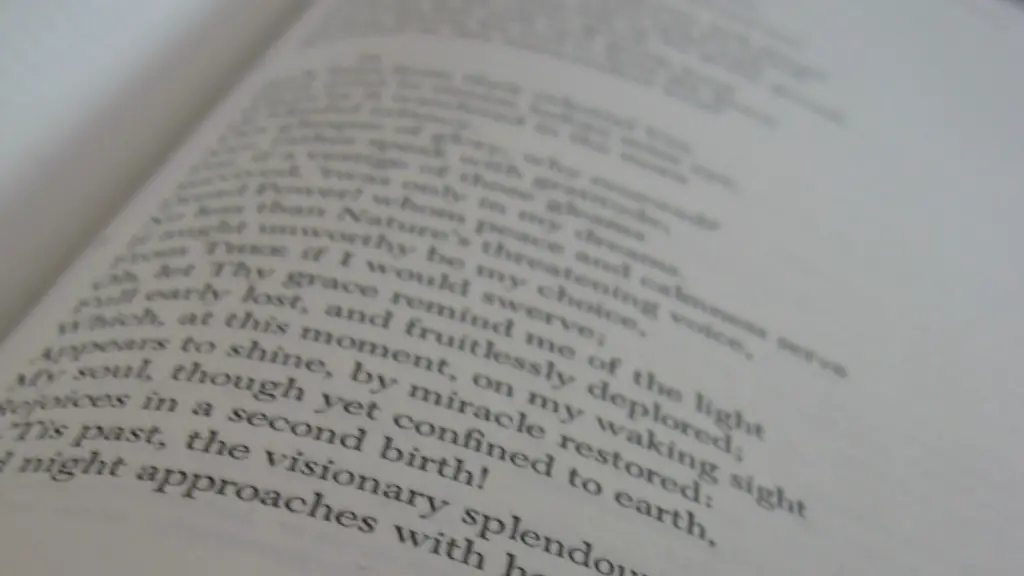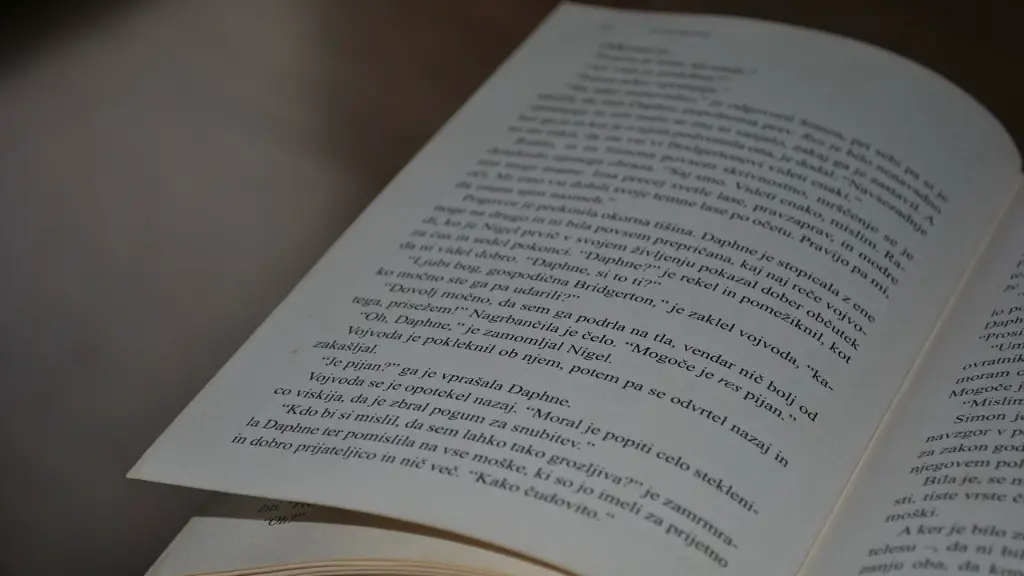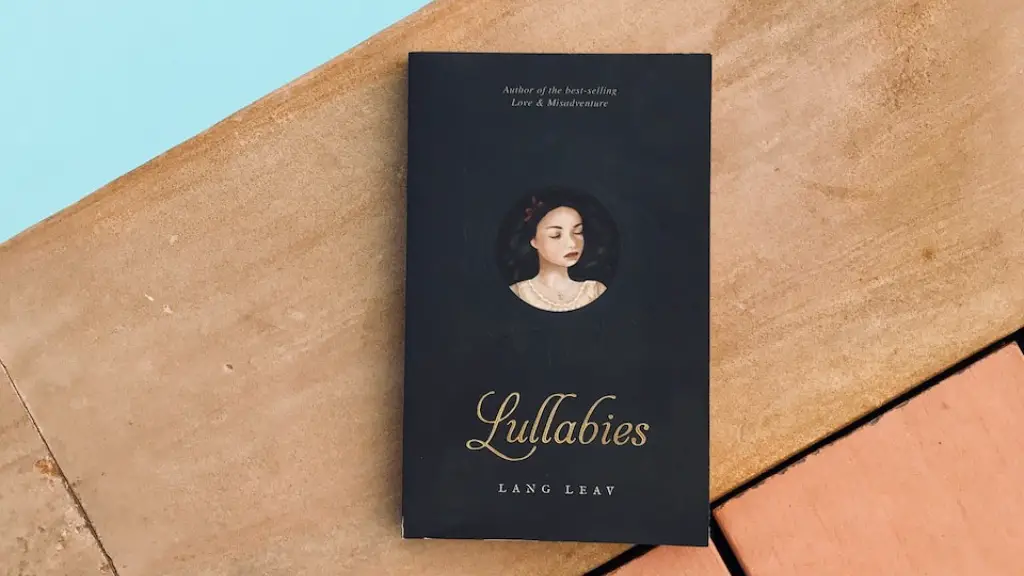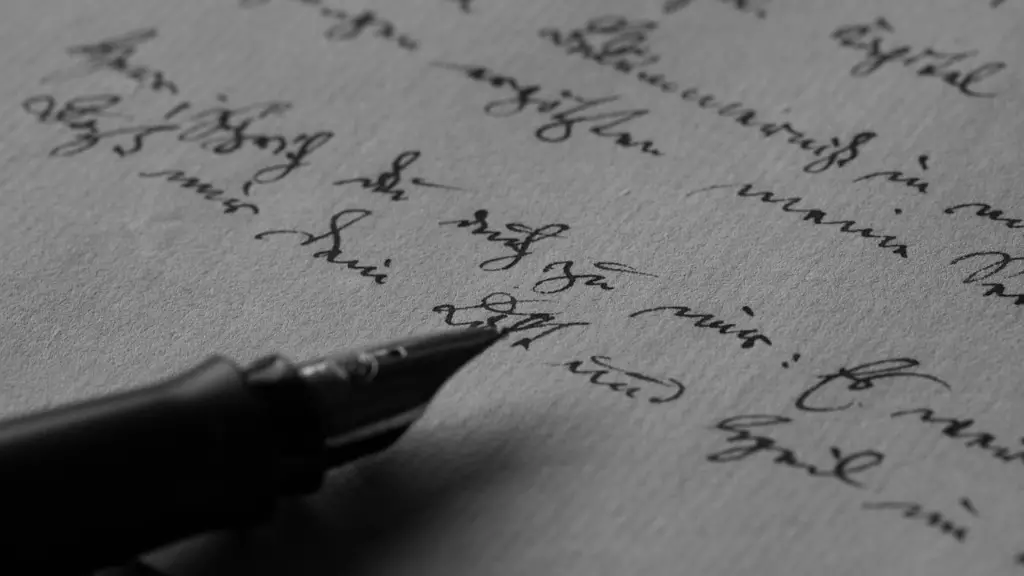Is Poetry a Talent?
A frequent discussion among poets, authors, artists and even musicians has been whether poetry is a talent or a skill. Numerous experts have sought to answer this question, with some arguing that it is a talent, while others disagree. To answer this important debate, an evaluation and comparison of both the skill and talent aspects of poetry is needed and is the aim of this article.
Talent consists of natural abilities that come instinctively, either on the spot or through deep meditation. This has been described as something that a person is “just born with.” Examples of talent can be seen in athletes, singers and dancers, with some possessing near superhuman abilities in their areas of specialty. Skills, on the other hand, can be developed and are more targeted, often requiring time, dedication, and hard work to master. Skills are usually acquired through practice, experience, and/or instruction.
When considering poetry, the argument is generally made that it requires both talent and skill. On the one hand, authors have spoken of being able to “hear” poems in their heads, before they are ever written down. This appears to be more in line with a natural talent, rather than something that is learned. On the other hand, poetry also requires skill and knowledge of poetic devices and conventions, such as rhyme and meter, something which is not necessarily inherent, and may take time to master.
Along with skill and talent, creativity also plays an important role in the crafting of poetry. One’s creative abilities often come from within and can be seen in one’s ability to think and reason about ideas in unique and original ways. These creative powers often come naturally but can also be enhanced through practice and instruction. In other words, the art of craftsmanship and imagination is, in some ways, a hybrid of talent and skill—a ‘third component’, if you will.
Undoubtedly, the process of creating poetry is deeply personal, and each individual will have different experiences and methods of expression. That being said, it is clear that both talent and skill are necessary in the art of poetry. One cannot discount the influence of talent. In fact, it can be argued that talent is the necessary start to any creative pursuit—the gateway, if you will. And skills must be acquired and practiced in order to hone one’s talent and create meaningful and lasting works of art.
In the end, it is up to each individual to determine for themselves how the delicate balance between talent and skill should be handled when writing poetry. So, whether one believes that poetry is a talent or a skill, it cannot be denied that such a combination makes for a powerful and unique form of art.
What is Talent?
Talent is usually thought of as a special ability or skill which a person is naturally good at. In other words, talent is something that comes naturally. Talent can be seen in tennis players or musicians, who have a natural aptitude for their chosen field. However, talent is not always easy to distinguish. It can often be mistaken for skill, making it difficult to tell the difference between the two.
Talent often manifests as a strong interest in something, or an unusually high capability in a specific area. Talented people may have an instinctive understanding of a subject, or a unique way of doing things that gives them an edge. This can make them stand out from the crowd, sometimes garnering recognition from teachers and peers.
At the same time, talent does not always equate to success. It is not enough just to be talented for success, the individual must also be willing to work hard and be willing to learn. Talent alone cannot guarantee success.
Despite this, it is undeniable that talent is an important factor when considering success in any endeavor. It is talent which provides the foundation from which to build upon, and it can be the difference between achievements and mediocrity.
What is Skill?
Unlike talent, which is usually seen as an inborn trait, skills are generally considered to be learned abilities, or those which can be acquired through practice and application. Skills can also be developed through a professional or academic program, and can be honed by gaining experience and spending time studying, training and applying the acquired knowledge.
Skills can be both tangible and intangible, depending on the context. Tangible skills are those that can easily be seen or measured, such as typing speed. Intangible skills are those that cannot be seen or measured, such as problem-solving capacity, or the ability to communicate effectively in a certain language.
Some experts even argue that skills are more important than talent. They argue that a person can rely on their skills to bridge the gap between their current abilities and desired results, whereas talent can only take a person so far. As such, skills are an important factor in achieving success in any field.
Skills can also help individuals to understand and capitalize on their talents. For instance, if a person has a talent for writing poetry, but has not acquired the necessary skills, they are unlikely to reach the same level of success as they would if they had a combination of talent and skill.
Train the Mind and Body
In order to make the most of both the talent and skill sides of poetry, it is important to keep both the mind and the body in balance. This is because, as we know, mental health affects physical health, and vice versa.
Physical activity is important to maintaining a healthy lifestyle and to optimal cognitive functioning. It has been shown to reduce stress, anxiety and depression, and can even increase concentration. Physical activity can also provide an outlet for creative expression, as it can ignite new ideas and spark ideas when a person is feeling blocked. Additionally, exercise has been associated with a reduction in unhealthy behaviors, such as substance abuse.
Mental stimulation is also important for the development and maintenance of skills, as well as the honing of one’s natural talents. Reading books, writing assignments, and learning new concepts can help to sharpen the mind. Additionally, taking time for reflection, such as quiet meditation and journaling, can also help individuals to gain clarity and insight, and to express their thoughts more effectively.
It is clear then, that balance between training one’s body and mind is important for the development of poetic skill and ability.
The Importance of Learning from Others
In addition to physical and mental training, it is also essential to learn from others. Having mentors, peers, and experts critique one’s work is an important part of the learning process.
Exposure to the works of other poets, both past and present, can help individuals to recognize patterns, understand the mechanics of poetry, and to explore different forms and styles. It can also help to identify areas of potential growth, and to gain perspective on one’s own work.
Collaboration with others is also a valuable learning experience. Working with different people can bring new ideas and approaches. This not only allows one to become a better poet, but can also give individuals new ways to think and new ways to express themselves.
Learning from others can also help to structure a creative practice and give poets additional inspiration. Moreover, it can also help to foster a sense of community, as writers and poets come together to create.
Thus, the importance of learning from others cannot be denied. It is a vital part of the skill and talent development process.
Final Thoughts on Poetry as a Talent
Poetry is a powerful, evocative art form which requires a blend of both talent and skill. It is a delicate balance between the two which leads to success. In order to maintain this balance, it is important to keep both the body and mind in balance, and to learn from others.
Talent is an incredibly important factor in the crafting of poetry, and can be the doorway to the art form. However, it needs to be nurtured and honed, and skills must be developed and practiced in order to create meaningful and lasting works of art. Thus, it is safe to say that both talent and skill are necessary for success in the realm of poetry.
